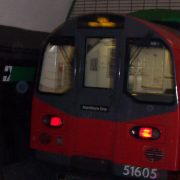Germany used to be really progressive in terms of recycling and deposit bottles. Whilst the days of glass deposit bottles in the UK disappeared at the end of the 1970s, Germany still today charges a small deposit on plastic bottles.
The difference is that, when I first came to live in Germany there was only a deposit on recyclable bottles. Recently, all that has changed.
Some years ago someone worked out that too many tin cans were being thrown away and not recycled. The cans belonged in the so-called Grüne Punkt system – that’s usually the yellow rubbish bag or bin. Too few cans were finding their way into the system and thus were not being recycled. To combat this problem a deposit was introduced on cans and the had to be taken back to the supermarket.
This was thwart with problems. Not all cans were affected – it depended on what was in them. The cans could not be crushed, so you had to collect them in a good state and return them to the supermarket, who then had to store them to recycling. And finally, there was no central system to recycling the cans. Each chain or even shop required you to produce the receipt from when you purchased the can, and would only takes ones that they had sold back.
I remember once going away from the weekend and buying a can at a service station on the motorway. I had to return it to that very same service station on the way back – on the other side of the motorway. Of course, I had to prove that I had bought it there a couple of days before.
So in the end, a lot of supermarkets stopped stocking cans. That’s another way of solving the problem, I guess.
The next stop was to put a deposit on non-recyclable bottles. For some reason this deposit is higher than on the bottles that can be recycled. Again, it took a while for a system to be agreed and until then every chain had their own system.
Even now, you can only return one of these bottles to a shop that sells that product. So if you buy a shop’s own brand, then you have to return the bottle to them. The machine that you put them into even scans the barcode to make sure of it! If the barcode is missing, then the deposit is lost.
Which leads me back to my motorway problem. Recently I bought a large bottle of a soft drink on a motorway service station. To avoid any problems, I wanted to return it on the other side of the motorway on the return journey.
Do you think that they accepted the bottle? Of course they didn’t – “we don’t sell that size of bottle here” was the answer. They had the same drink on sale in a different size bottle. (For some reason they wanted to tell me this in English as well, which didn’t go down well).
I insisted that I had purchased the bottle at their other store on the other side of the motorway, but they didn’t believe me. “OK”, I said, “then I’ll go out to my car and fetch the receipt. But if I do, and I’m right, then I expect you to accept the bottle and give me my deposit back”. This did not go down well – a customer putting his foot down. The cashier reached into the till and begrudgingly took the bottle and gave me my money. Did they really think I was going to keep the bottle and take it back with me on another trip to the original side?





[…] on of the drinks from the bill. Perhaps she didn’t want to us hold up the queue anymore? (Sound familiar?) […]